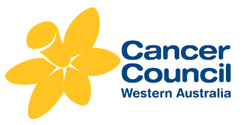What are the risk factors for breast cancer?
This information provided by Cancer Council Western Australia (external site).
The cause of breast cancer is still unknown, however research has identified a number of factors that increase the chances (risk) of developing breast cancer.
Gender and age
The main risk factors for developing breast cancer are being a woman and getting older. More than 70 per cent of all breast cancers occur in women aged 50 years and over. Breast cancer is rare in women aged 20 to 30 years. Breast cancer is also rare in men.
Previous history
Women who have previously had breast or ovarian cancer have an increased chance of developing breast cancer.
Family history
A woman’s risk of breast cancer is increased if one or more of her close relatives have been diagnosed with breast cancer. For example, if your mother or sister had breast cancer. However, less than 5 per cent of all breast cancers are caused by a family history and most women with 1 or 2 affected relatives will not get breast cancer. If you have a family history of breast cancer and are concerned about your risk speak to your doctor.
Being overweight
Being overweight or obese increases the risk of breast cancer. This is because body fat increases levels of the hormone oestrogen. Combining a balanced diet with regular exercise helps to maintain a healthy body weight.
Alcohol
Regularly drinking alcohol increases the risk of developing breast cancer. Limit your alcohol intake – if you don’t drink, don’t start. If you choose to drink, have no more than 2 standard drinks per day.
Reproductive and hormonal factors
- Menstruation and menopause – women who start their periods (menstruation) at a young age or who have menopause at a late age have an increased risk of breast cancer.
- Having children – the younger a woman is when she has children and the more children she has, the lower her risk of breast cancer.
- Breastfeeding – breastfeeding lowers the risk of developing breast cancer, probably because it reduces a woman’s total number of menstrual cycles. Breastfeeding for longer can also reduce a woman’s risk.
- Induced abortion – there is no conclusive evidence that induced abortion increases the risk of breast cancer.
- Oral contraceptives – oral contraceptives (the Pill) cause a slight increase in breast cancer risk. However this risk gradually decreases after a woman stops taking them.
- Hormone replacement therapy (HRT) – women taking hormone replacement therapy (HRT) have an increased risk of developing breast cancer, particularly if they take the combined oestrogen/progesterone HRT.
Does breast cancer occur in younger women?
With high profile young women such as singer Kylie Minogue and actress Belinda Emmett being diagnosed with breast cancer, you may have the perception that breast cancer is on the increase in younger women.
In fact, breast cancer is still a rare occurrence in young women. Around 5 per cent of all breast cancer cases are found in women under the age of 40.
This means little, however, if you are a young woman with breast cancer.
Being aware of and preventing breast cancer is still important for young women.
Become familiar with the look and feel of your breasts and report any unusual changes to your doctor.
Breast cancer can be harder to detect in young women as their breast tissue is often thicker than breast tissue in older women. Because a young woman’s breasts are so dense, a mammogram isn’t always useful for detecting early breast cancer.
Because detection can be difficult, the cancer is often advanced when it is discovered. Young women may also ignore the warning signs and symptoms because they think they are too young to get breast cancer.
Quite often, the cancer is discovered when the young women or their partner find a lump in the breast. This is why it is important for women to regularly check their breasts. Know what is normal for you and report any changes to your doctor.
Not all lumps are cancer. Finding lumps in the breast is not uncommon for young women. In most cases, these lumps turn out to be cysts (small fluid filled lump). Even so it is important to get any unusual lumps or other changes checked out – your doctor won’t think you are over-reacting.
To reduce your risk of breast cancer, maintain a healthy body weight, eat well, exercise regularly and limit alcohol consumption.
More information
Where to get help
This information provided by

Acknowledgements
Cancer Council Western Australia
This publication is provided for education and information purposes only. It is not a substitute for professional medical care. Information about a therapy, service, product or treatment does not imply endorsement and is not intended to replace advice from your healthcare professional. Readers should note that over time currency and completeness of the information may change. All users should seek advice from a qualified healthcare professional for a diagnosis and answers to their medical questions.